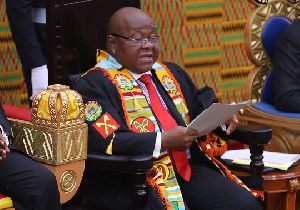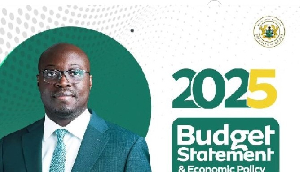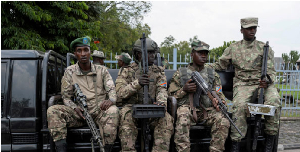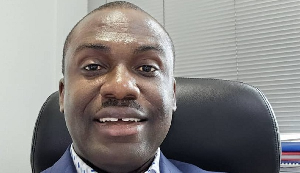President Thabo Mbeki will be sworn in on Tuesday, 27th April to begin a five-year second and final term in Office as the President of the Republic of South Africa. This comes at the heels of a very successful election, which his party, the African National Congress (ANC), won two-thirds majority, representing nearly 70% of the votes cast. The immediate rival of the ANC, the Democratic Alliance party (DA) received 12% of the votes whilst the Inkarta Freedom Party (IFP) garnered only 7% nationally with most of the votes obtained in its stronghold, Kwazulu Natal. The remaining minor opposition parties, including the once powerful New National Party (NNP), received 11% of the votes. The NNP received just 1.7% of the votes. Clearly the NNP, the architect of apartheid, is on its way to political oblivion.
Despite the scare mongering tactics of the opposition parties, especially the charge by the Leader of DA, Tony Leon, that the ANC was coveting to turn South Africa into a one party state, an overwhelming majority of the South African electorate ignored the doomsday scenario and gave the ANC a hefty mandate.
The astute South African electorate understood the challenges that the ANC party inherited from the apartheid regime and have kept faith with it. They are grateful to a party that has, since 1994, worked tirelessly to improve the lot of disadvantaged South Africans.
A decade after coming to power, the ANC led government has delivered 1.6 million houses built for the poor. A whopping 70% of households are electrified. And above all, 9 million households have access to portable water.
What is remarkable about these achievements is that the ANC government has been able to maintain a stable macro economy with low inflation and low interest rates. It has not given in to cheap populist demands. The ANC government, contrary to white fears and prejudices, has understood the importance of good economic governance.
What is remarkable about the ANC, in whose rank consists of trade unionists and communists, is that economically speaking, it is possible to pursue moderate policies and, at the same time, be able to meet the challenges that face the marginalised segment of society.
South Africa is certainly not yet out of the woods. The country faces major challenges such as high unemployment, estimated at 30% of the working population. There are an estimated 5.3 million South Africans infected with the HIV/AIDS virus. There are high levels of crime. A decade after independence, income inequality is too skewed. The minority white population still controls most of the wealth of the country.
What lessons can Ghana draw from the South African experience?
There are several lessons to be gained from South Africa. However, we will like to draw readers? attention to only three.
First, the Independent Electoral Commission of South Africa (IEC) has shown that it is possible for an African country to organise elections devoid of technical hitches, violence and voting irregularities. The IEC was duly prepared for the exercise. The organisational set up and logistical support were simply superb. They mapped out the possible hot spots and anticipated solutions. The army, police and other security agencies were effectively mobilised to support the IEC.
For example in Kwazulu Natal where there was a strong possibility of violence, over 20,000 security agents were deployed. The much-anticipated violence never occurred in that hotbed of South African politics. In sum, the IEC has amply demonstrated that with excellent planning and forward thinking, an independent electoral commission can deliver a flawless electoral outcome. Indeed it is remarkable that there were no international observers at the South African elections. Such was the level of confidence and trust in the IEC.
The Electoral Commission of Ghana has seven months to replicate the impeccable record of the IEC of South Africa. This should not be a tall order!
Second, Ghana?s opposition parties should take a leaf from South Africa. The DA embarked on scare mongering, among other things, it insinuated that the ANC would change South Africa?s Constitution to enable President Mbeki stand for a third term. Also, they told the electorate that a massive win for the ANC could turn South Africa into a one party state. As the results clearly indicate, the majority of the voters did not buy into the scare tactics of the opposition parties.
And third, ANC?s massive electoral success confirms that voters appreciate it when a government anticipates their needs and takes steps to meet them. Politics is about delivery and meeting the aspirations of the people, in particular the poor. When a governing party works hard to provide schools, to support mass transit system, to deliver quality health care for the poor and takes care of the needs of farmers, it becomes difficult to defeat it at the polls!
Opinions of Thursday, 22 April 2004
Columnist: Asibey, Akwasi








![Isaac Kwadwo Ampong [L] and President John Mahama Isaac Kwadwo Ampong [L] and President John Mahama](https://cdn.ghanaweb.com/imagelib/pics/549/54996138.295.jpg)





